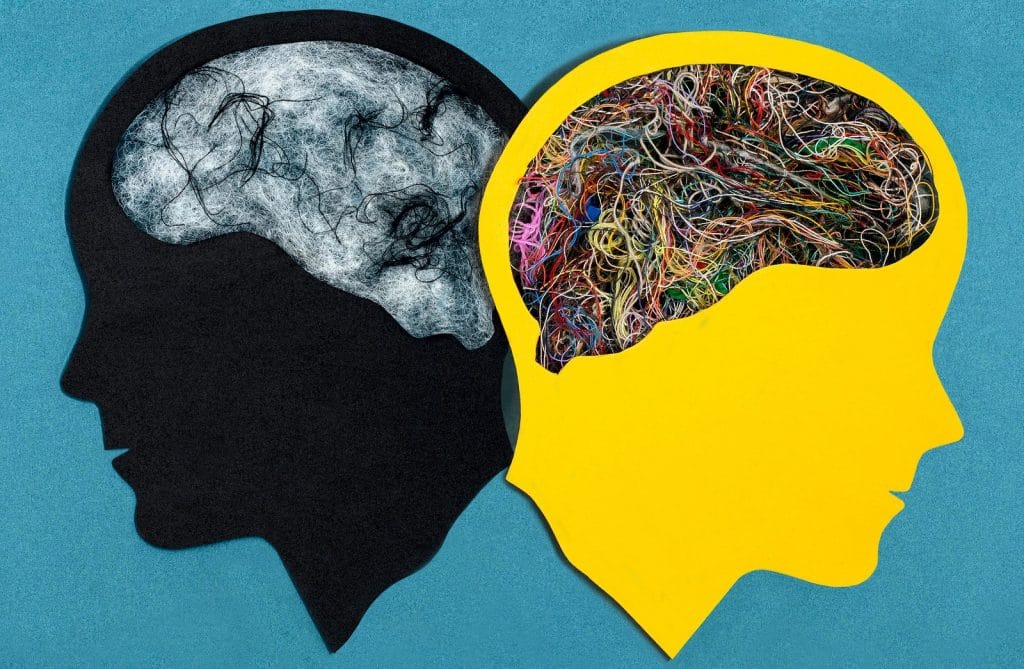What is Bipolar Disorder? Signs, Characteristics, Causes, and Coping Strategies
Introduction:
Bipolar disorder, formerly acknowledged as manic depression, is a complicated mental health situation that influences millions of humans worldwide. It is characterized by using extreme temper swings, consisting of periods of excessive euphoria and strength (mania) and episodes of profound disappointment and hopelessness (depression). In this comprehensive article, we will delve deeper into the world of bipolar disorder, exploring its signs and symptoms, understanding the characteristics of men and women with bipolar disorder, inspecting potential causes, and offering coping techniques for these residing with this condition. By increasing consciousness and understanding, we can create more compassionate and supportive surroundings for people dealing with bipolar disorder.
What are the Signs of Bipolar Disorder?
Bipolar ailment offers a various range of symptoms and signs and symptoms that can differ in depth and frequency amongst individuals. During a manic episode, a individual may also showcase heightened electricity levels, fast speech, grandiose thinking, reckless behavior, and a reduced want for sleep. On the different hand, depressive episodes can also involve emotions of sadness, worthlessness, loss of hobby in activities, changes in appetite, and ideas of suicide. Recognizing these signs is crucial for timely intervention and excellent treatment.
What are the Characteristics of a Person with Bipolar Disorder
Living with bipolar sickness can be challenging, impacting a variety of components of a person's life. Individuals with bipolar ailment frequently journey emotional volatility, finding it challenging to manipulate their thoughts for the duration of mood swings. Fluctuating power ranges and diminished want for sleep at some stage in manic phases can lead to impulsive actions and risk-taking behaviors. Maintaining stable relationships can be challenging due to the unpredictable temper shifts. However, men and women with bipolar disorder may also show wonderful creativity, resilience, and empathy in coping with their condition.
What Causes Bipolar Disorder?
The specific reason of bipolar ailment is no longer entirely understood, but researchers agree with it arises from a mixture of genetic, neurobiological, and environmental factors. Genetics performs a enormous role, as persons with household records of bipolar ailment have a higher threat of growing the condition. Neurotransmitter imbalances in the brain, specifically involving serotonin and dopamine, are additionally associated with bipolar disorder. Additionally, annoying life activities and worrying experiences may also trigger or exacerbate bipolar episodes in inclined individuals.
How Does a Person with Bipolar Disorder Think?
Bipolar ailment now not only affects temper but additionally influences a person's thinking patterns and cognitive processes. During manic episodes, a man or woman can also trip racing thoughts, heightened creativity, and a sense of invincibility. This grandiose questioning can lead to impulsive choices and risk-taking behaviors. Conversely, at some stage in depressive episodes, cognitive features may additionally slow down, leading to problem concentrating, feelings of worthlessness, and terrible thought patterns. Understanding these cognitive elements is necessary for offering complete care and support.
Is Bipolar Disorder Genetic?
Research strongly suggests a genetic factor in bipolar disorder. If a close family member, such as a parent or sibling, has the condition, the danger of growing bipolar sickness is extensively higher. However, it is necessary to note that genetics is not the sole determinant, and different factors, such as environmental stressors and neurobiological influences, additionally play a role in the development of bipolar disorder.
What is Manic Depression?
Manic despair is an older term for bipolar disorder, highlighting the attribute temper swings between intervals of mania and depression. The time period "manic depression" has been traditionally used to describe the severe emotional fluctuations skilled via people with bipolar disorder. However, as our understanding of the circumstance evolved, the term "bipolar disorder" was adopted to encompass the entire spectrum of temper disturbances, together with hypomania and cyclothymia.
Coping Strategies for Bipolar Disorder:
Living with bipolar sickness requires a comprehensive treatment strategy and coping techniques to manipulate temper swings effectively. A mixture of psychotherapy, medication, lifestyle adjustments, and assist structures can notably improve an individual's high-quality of life. Cognitive Behavioral Therapy (CBT) helps men and women understand and modify negative idea patterns and behaviors. Medication, such as temper stabilizers and antidepressants, can assist alter mood swings. Healthy way of life practices, which includes everyday exercise, enough sleep, and stress reduction techniques, are really useful for managing the condition. Additionally, constructing a help community of grasp household members, friends, and intellectual health authorities can grant quintessential support during challenging times.
Conclusion:
Bipolar ailment is a complex mental fitness condition that can notably affect a person's existence and well-being. By recognizing the signs and symptoms, grasp the characteristics of individuals with bipolar disorder, and exploring manageable causes, we can foster a extra empathetic and inclusive surroundings for these residing with this condition. Early diagnosis, fantastic treatment, and ongoing help are critical in supporting men and women with bipolar disease control their signs and symptoms and lead enjoyable lives. Together, let us work toward lowering the stigma surrounding mental health and ensuring that all men and women receive the care and perception they deserve. By building a supportive community and merchandising intellectual health awareness, we can empower men and women with bipolar sickness to thrive in spite of their challenges.







Comments
Post a Comment